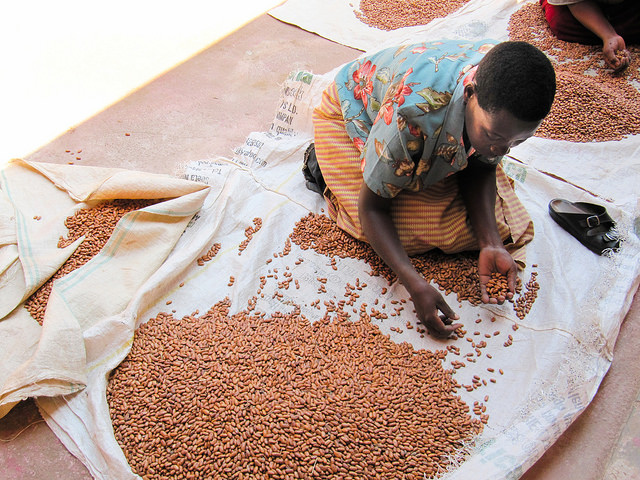IFPRI has been partnering with German development agencies, universities, and nongovernmental organizations (NGOs) for more than three decades to build the evidence base needed to effectively tackle pressing development issues. The German government’s unwavering support has been instrumental to developing IFPRI’s groundbreaking policy research, and IFPRI’s direct engagement with German universities and NGOs has led to important exchanges of knowledge and expertise in critical food and nutrition security areas.
IFPRI, Welthungerhilfe, and Concern Worldwide developed the Global Hunger Index (GHI), which has been critical in holding governments accountable and spurring action to combat global hunger and undernutrition. For 11 years, the GHI and its reports provided thought-provoking information for mobilizing political will and fostering effective policies to curtail hunger and undernutrition. In 2015, India’s President called on future Indian leaders to improve the nutritional status of their people using data from the 2015 GHI Report. Zambian stakeholders also referenced the GHI reports in 2015 and 2016 to urge their government to intensify nutrition interventions.
Research on the economics of land degradation, led by IFPRI and Center for Development Research at the University of Bonn (ZEF), offered a comprehensive account of the cost and consequences of land degradation. The evidence from this joint study helped bring to the forefront of the global development agenda the urgent need to reverse land degradation, which has become part of Sustainable Development Goal 15 on Sustaining Life on Land.
Similarly, research supported by Germany’s Federal Ministry for Economic Cooperation and Development (BMZ) contributed to the Committee on World Food Security Report on “Water for food security and nutrition,” as well as to important insights on linkages between gender and climate change that are influencing the global research and policy agenda on this topic.
Another example of IFPRI and Germany’s work is in Yemen. IFPRI, with support from the German Agency for International Cooperation (GIZ), provided research and technical assistance to the Government of Yemen to develop its National Food Security Strategy (NFSS). The NFSS developed goals and an action plan for improving food security in the country by 2020. In 2013, the Government of Yemen used the NFSS to underpin its application for funding from GAFSP, resulting in a $36 million grant. In addition, IFPRI’s technical assistance helped the Ministry of Planning and International Cooperation (MoPIC) become a hub for sound economic analysis. In 2014, policy analysis conducted by MoPIC facilitated the approval of a $553 million loan from the International Monetary Fund (IMF) to fund the government’s pro-growth and pro-poor reforms.
IFPRI and German partners’ joint work will continue to play a crucial role in generating innovative research that tackles the root causes of hunger, undernutrition, and poverty. More examples of these collaborations are highlighted in this brochure.
Janna de la Paz is a Program Analyst at IFPRI. To view/download/print a PDF of this post, click here. For more about how IFPRI research is influencing stakeholders and policy debates around the world, see the Outcome Stories blog.







